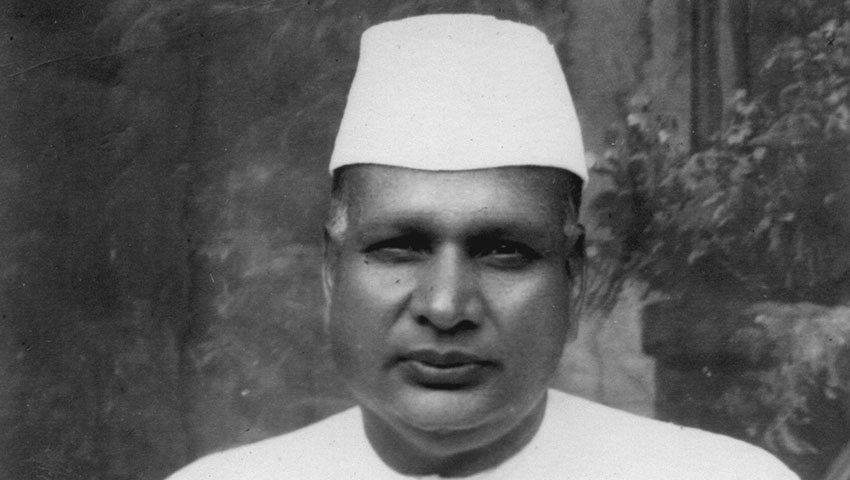
Jamnalal Bajaj
(1889 - 1942)
The Man on a Mission
In recalling the stalwarts of the freedom struggle, Shri Jamnalal Bajaj’s name is one name that is integral to it for sheer earnestness, single-minded commitment, depth and breadth of contribution and making words into deeds.
The young man who renounced his claim on the family wealth at the tender age of seventeen, the businessman, among very few, who incurred British wrath for supporting the freedom movement and the only one who renounced the titles of Honorary Magistrate and Rai Bahadur, and a humble spirit who gave of himself completely to the freedom movement - mind, body and soul.
He refused to obey the instructions of the British authorities. Jamnalalji was a social reformer who walked his talk - abolishing purdah in his own home, opened the doors of his family-owned temple to Harijans (untouchables) - the first temple in India to do so, a freedom fighter who suffered protracted jail terms preferring a ‘C’ class prisoner status and a ‘Merchant Prince’ who lived a lower middle class life.
Jamnalalji participated in the Non-co-operation Movement in 1921, the Nagpur Jhanda Satyagraha in 1923 to uphold the honour of our National Flag, the Boycott of Simon Commission in 1929, the Salt Satyagraha in 1930, and the Anti war campaign in 1941.
He was the one leader who was simultaneously active in the struggles in the princely states – leading the Jaipur Satyagraha in 1939 as also bringing to resolution struggles in Bijolia and Sikar.
But it was in implementing the Constructive Programme of Gandhiji that Jamnalalji overreached himself. As the Founder-President of the ‘Gandhi Seva Sangh’ and Chairman of the ‘All-India Khaddar Board’ he undertook extensive khadi tour first in Rajasthan followed by the entire country.
Establishment of Mahila Ashram at Wardha and Mahila Shiksha Sadan in Ajmer are a living testimony of his earnest endeavours for women emancipation through education.
Humanitarian, freedom fighter, philanthropist, social reformer and a devoted Mahatma Gandhi follower, Jamnalalji was adopted as the fifth son by Gandhiji. He was the alter ego of the Mahatma in the Gandhian constructive movement, who took active part in the Indian freedom struggle. Jamnalalji also undertook pioneering work in the field of Go-seva (Cow protection), upliftment of the 'dalits' or the downtrodden, education of women, propagation of Hindi, spread of Khadi (hand spun and hand woven cloth) and the development of khadi and village industries.
He went all out to propagate the use of Hindi by undertaking an all India tour for the purpose. His address as President of the Hindi Sahitya Sammelan in Madras is a comprehensive exposition of the dimensions of Hindi and regional languages of India.
As an industrialist and a businessman, Jamnalalji was singular in enunciating for himself a strict code of ethics. He earnestly tried to practice the Gandhian ethic in every sphere of his life – political, social, business and personal. This was not an easy task. It was more difficult to be a Gandhian than to be a capitalist, a communist or a socialist.
He had an innate diffidence coupled with an ascetic streak in character. This took him to interact with great saints like Maharshi Raman, Sri Aurobindo, Mata Anandmayee, Sant Tukdoji. It was he who brought the greatest Rishi of 20th century - Vinoba Bhave to come and stay in Wardha.
It was in fitness to the stature of Jamnalalji that the Government of India, irrespective of political dispensation, honoured his memory by releasing a commemorative postal stamp in 1970 as also officially celebrating his Birth Centenary Year in 1990.

